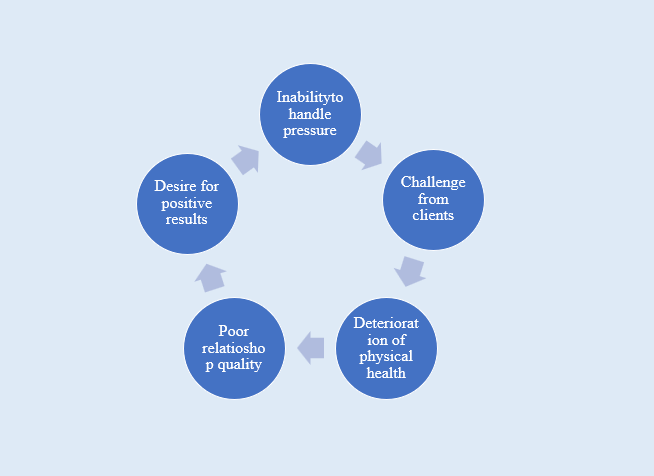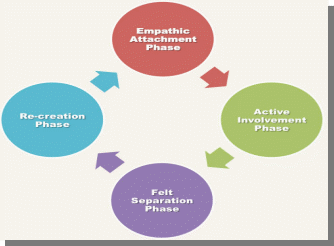Abstract
In counseling, self-awareness is an important tool to apply because it helps counselors to have a clear notion or perception about their personalities, capabilities, cognitive speed, emotions, and motivations in working. When a counselor is aware of their traits and habits, they can be able to understand how clients look at them in terms of behavioral and professional conduct. After a counselor is enlightened about their personality, they can get the charisma to help their customers to change some of the stereotypes they might have concerning the subject of discussion (Bars & Oral, 2017).
When a subject is well interpreted, that facilitates the ability to measure the emotions and leverage on the appropriate course of action. Some of the important elements in building self-awareness in counseling are to observe the feelings, thoughts, relationships, roles, decisions among others. For instance, the importance of an observer who is objective such as a psychotherapist is evident in research and performance (Anderson, 2019). Thus, inaccuracy in professional counseling can be barred when one is aware of their personality in their workplace.
The Rationale of Developing Self-Awareness
When a professional counselor is self-aware can mark the boundaries in terms of their personalities and ego when working. Therefore, what belongs to the counselors as well as clients is well thought before making any action during delivery of counseling duties. The rationale behind self-awareness is to make counseling sessions to be fruitful and well-organized for the benefit of individuals being guided and also the person offering the services (Anderson, 2019). Therefore, to adhere to the ethics in the field of counseling, any person offering such duties must differentiate between the normal and working environments.
Self-awareness allows a counselor to make conscious application of their natural codes of conduct. Any time a counselor is self-aware, there is a feeling of empowerment in cases such as therapeutic interventions because they will tend to think beyond the box and act in the right way (Bars & Oral, 2017). Thus, self-awareness is a compulsory element that must be possessed by all individuals venting in the counseling field. Being aware of oneself allows the moments of identifying the stressors and utilising the knowledge and information to build the mechanisms for copying such situations.
Characteristics in Developing Self-Awareness in Counselling
All professional counselors must behave in a specific manner when while working to instill self-awareness. One of the characteristics that must be visible for these professionals is metacognition. This feature is realized when a person thinks about thinking. In this case, it means a professional counselor will act in a manner to suggests that they weigh matters before making critical decisions (Wilkinson, n.d.). The higher the levels of metacognition, the more chances to solve the problem. The other characteristic that must be evident when developing the skills for self-awareness is cognitive complexity. In that case, a counselor will be keen to integrate and assimilate various perspectives during work and use information power to help during counseling.
Additionally, intersectionality is an important character trait that a professional counselor must work on during the working sessions. It will allow them to know various matters from the client’s stratification system such as social injustice among other issues (Green, 2019). Lastly, a professional counselor must improve the character of cultural competency in integrating various perspectives in counseling sessions. It will give them a chance to know if a person seeking counseling assistance requires such service or they might have a deep challenge in understanding themselves.
Influences for Developing Self-Awareness in Counselling
Some key drivers can make a counselor need to develop their self-awareness skills. For a counselor who is not self-aware, they might be not capable to deal with work-related pressure and stress because their ego will be barring them contrary to the ethics of their work (Wernsing, 2018). The other influence that can make someone know they need to improve their self-awareness is poor relationship qualities between them and the clients as shown in figure 1 below.
If a client challenges a counselor on some basic issues such as rage, then there is a problem with self-awareness for the social worker. Additionally, if a counselor notices. If the physical health for the counselor is deteriorating as they keep doing their work, there is a need to have professional development of self-awareness (Pearson, 2019). Lastly, motivation and the desire to have effective counseling sessions drive one to work on self-awareness matters.

Processes for Developing Self-Awareness Based on Skovholt’s Cycle of Caring
In helping professionals in various fields including counseling, there is a process that serves as an incubator for the development of self-awareness. The cycle of caring, developed by Skovholt (2005), helps to understand elements such as empathic attachment, active involvement, and felt separation that can be useful for a counselor during their work as shown in figure 2 below. When the cycle is done proficiently, with many clients, it leads to an exemplary model of expertise that can help counselors in self-awareness matters.
Empathic Attachment
At this first phase of Skovholt’s cycle of caring model, it requires a counselor to be attached, caring, and bonded to the client so that they can have a feeling of empathy towards the customers. When empathizing, the counselors must maintain a level of the emotional boundary so that they remain objective, cognizant, and reflective in their self-care. At this point, the client must be cared for without being influenced beyond the required level by their situation (Skovholt, 2005). Empathetic attachment can be achieved by active listening, establishing a relevant rapport, motivational l interviews, setting effective boundaries, acknowledging the self-care needs among other balances.
Active Involvement
This being the second phase of the model, a counselor is required to professionally assess the needs of the clients and provide expertise as one way of intervening in the situation. At this point, the counselor must be critical not to confuse the subject and offer wrong guidelines. The determinants of this phase will depend on the person under care. Some of the stressors here may be limited resources, ambiguous professional reaction, infeasible timelines, and constant exposure to hard client dynamism (Skovholt, 2005). To achieve effective active involvement, some tools such as effective goal setting, efficient problem solving, clarity when working, and engaging client well are required.
Felt Separation
At this stage, a professional counselor concludes the active involvement with the client. Thus, there is an acknowledgment of engaging in a professional therapeutic relationship with the client and the disentanglement when leaving the session to ensure no collisions are evident. The focus here is to maintain the well-being and successful conclusion of the counseling process for the client (Skovholt, 2005). To succeed in this phase, the client must be prepared ahead, use the last session as one way of concluding, setting professional boundaries among other measures.
Recreation Phase
The recreation phase is the last in Skovholt’s cycle of the caring model. It is necessary to pause, relax and unload the work that was being done during specific sessions. Here counselor gets away from the work phase and focuses on other care as a transition while working. It is one way of reflecting whether or not they were able to interact with self-awareness when delivering the duties for the client (Skovholt, 2005). Planning breaks, engaging in regular hobbies, and drawing routine among others are ways to incorporate recreation.

References
Anderson, D. (2019). Introducing emotional intelligence: Mastering modern psychology to control emotions, improve communication and boost your leadership skills.
Bars, M., & Oral, B. (2017). The relation among metacognitive awareness, self-efficacy towards the teaching profession, and problem-solving skills of teacher candidates. Eurasian Journal of Educational Research, 17(72), 1-1. Web.
Green, L. (2019). Developing self-eloping self-awareness in counseling. Openriver.winona.edu. Web.
Pearson, M. (2019). Counseling intern self-awareness and readiness for practice: Reports from a mindfulness challenge. Asia Pacific Journal of Counselling and Psychotherapy, 11(1), 23-33. Web.
Skovholt, T. (2005). The cycle of caring: A model of expertise in the helping professions. Journal of Mental Health Counselling, 27(1), 82-93. Web.
Wernsing, T. (2018). Cognitive approaches to developing leader self-awareness. Academy of Management Proceedings, 2018(1), 11214. Web.
Wilkinson, T. Increasing counsellor self-awareness: the role of cognitive complexity and metacognition in counsellor training programs [PDF] (pp. 24–28). Auburn University. Web.